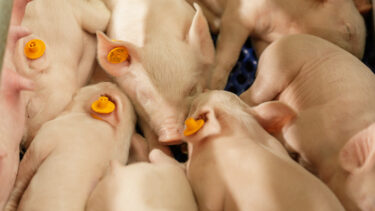Piglet’s immunity:understanding the sow’s influencefrom the start.
Piglets are born with an amazing level of maturity. While humans take months to become independent, piglets start exploring their environment in search of food within minutes of birth. However, in terms of immune system development, newborn piglets are still relatively immature. In their first weeks of life, they are heavily depending on the immunoglobulins transferred to them via colostrum and milk, while their own immune system develops only slowly.
The First Line of Defense: Understanding Colostrum’s Role in Piglet Immunity
The piglets’ immune system around birth can be seen like a blank sheet. The placenta in utero is epitheliochorial, preventing direct transfer of immunity from the sow to her piglets. Hence, timely intake of colostrum is critical, especially challenging with larger litters.
Another key factor in the immune system is the gut microbiome, from which the colonization only starts around birth for a piglet. The gut microbiome colonization is influenced by the sow’s factors such as colostrum composition and environmental factors like among others the sow’s birth canal and manure.
Given the piglets’ dependency for their immune development on the sow, ensuring her health is paramount. A healthy sow facilitates a smooth farrowing process, initiates lactation effectively, and aids in the piglets’ immune development.
Supporting Sow and Piglet Immunity During Critical Phases
However, during the transition period, sow immunity dips naturally around farrowing. Minimizing this dip and its side effects is crucial. Nutritional interventions can support the sow and her piglets during this phase.
Watch the webinar
To delve deeper into this subject, consider joining our recent webinar “Piglet’s immunity matters. Sow what?”. Watch the recorded session here.
This contact was suggested based on the location you are browsing from. You can of course also consult our other contacts and locations here.

